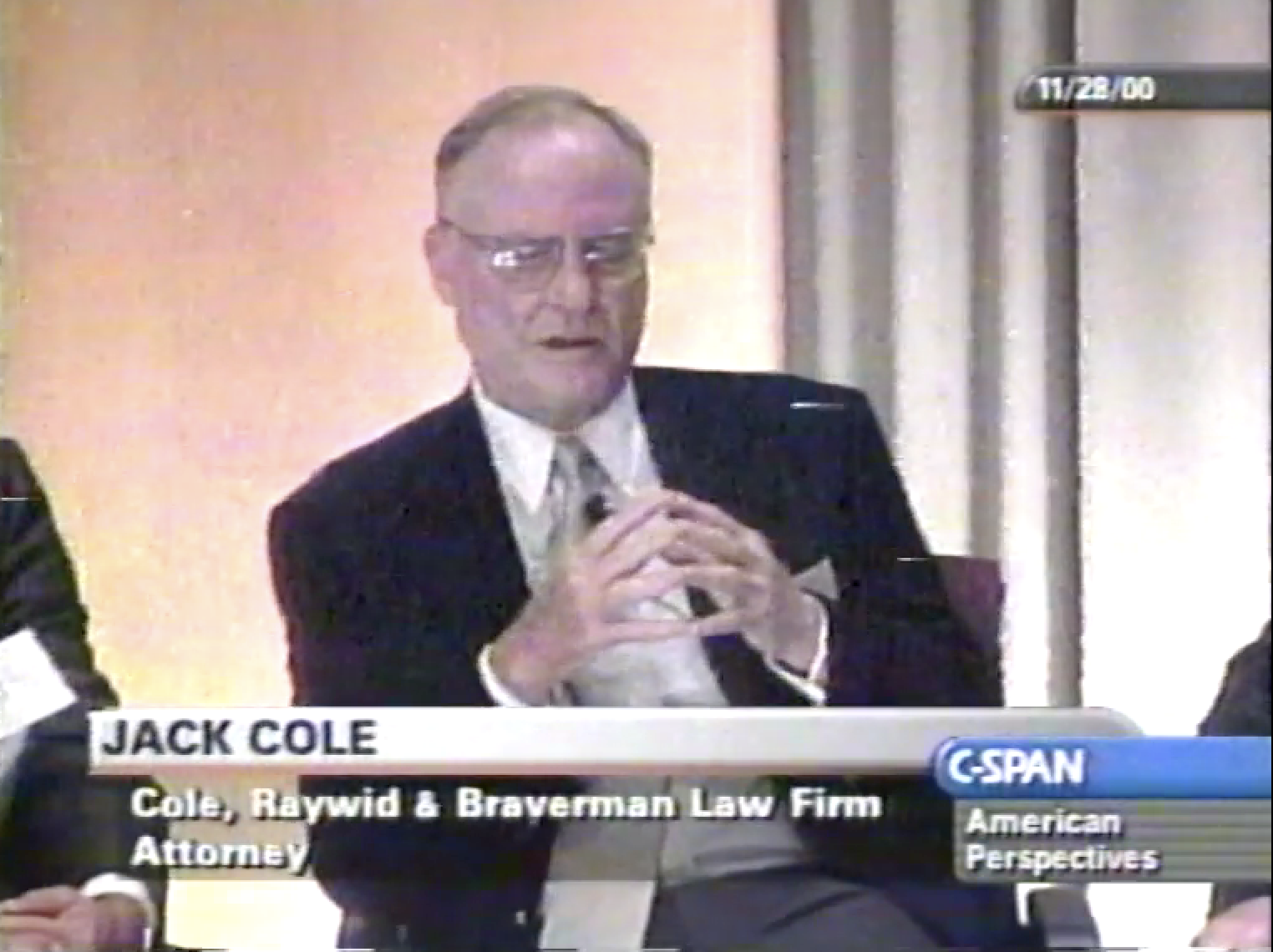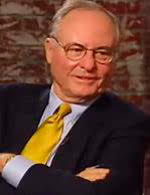Cable Law 'Dean' Jack Cole Dies, 92
Cole, Raywid & Braverman founding partner specialized in cable issues

The smarter way to stay on top of the multichannel video marketplace. Sign up below.
You are now subscribed
Your newsletter sign-up was successful
Jack Cole, founding partner of Washington communications law firm Cole, Raywid & Braverman (CRB) and a member of the Cable TV Pioneers, died on October 13 at his home in Sea Island, Georgia. He was 92.
Cole, who practiced communications law for half a century and whose firm was one of the first to specialize in cable issues, was considered by many the dean of the cable TV bar and fought for cable against what he saw as regulations that protected the politically influential, which at the time were the TV stations that he said could control public opinion.
"Jack was counsel over the years in many landmark proceedings before the FCC and the courts reflecting, and affecting, the development of the cable industry, and authored numerous articles and commentaries on cable regulatory issues and the First Amendment," points out his former senior partner, Burt Braverman, now a partner with Davis Wright Tremaine, which merged with CRB in December 2006.
Cole once said that he was proudest of the fact that while the powerful broadcast industry provided three or four channels, the cable industry turned that into almost unlimited choice.
In the early days, some of the fights were with TV stations who did not want competing programming imported into their markets via cable, TV stations who wanted must-carry rules, and movie producers that wanted damages for the retransmission of copyrighted programming, the last notably decided in cable's favor in the Fortnightly case.

Cole called that case, in which he was involved with at Smith & Pepper (though he said chiefly as a "briefcase carrier"), the most significant legal proceeding in the history of the industry.
The movie producers won at the district and appeals court levels and Cole said there were rumblings in the industry about not spending any more money on what appeared to be a lost legal fight. Wiser heads prevailed and the U.S. Supreme Court granted a further appeal. The Supreme Court reversed the lower courts. Had they not, Cole argued, the industry would likely have looked a lot different.
The smarter way to stay on top of the multichannel video marketplace. Sign up below.
John Pope Cole Jr. was born in Washington in 1930. After serving a year in the Air Force, Cole went to Auburn University, graduating with an engineering degree then getting his law degree from George Washington Law School in 1956. With law jobs in short supply during the recession, he told the Cable Center in a 2000 interview, he landed a job at what was then the FCC's Broadcast Bureau (now part of the Media Bureau).
When he met two lawyers looking for a third to join their firm -- Smith & Pepper -- he signed on, working mostly with Stratford Smith, who Cole said was the first D.C. lawyer to do any work for the cable TV business.
Cole took a leave of absence to work for a member of Congress on the Communications Subcommittee. Then in 1966 he left for good to launch CRB, with initial cable clients including Bob Rosencrans of UA Columbia (one of the largest cable operators of the time that merged with TCI) and Irving Kahn and Hub Schlafly at TelePrompTer, the largest cable system in the country in the early 1970s (which became Group W Cable and ultimately a part of Comcast).
Cole stepped back from active practice in about 2000 but was a member of the Liberty Global board for almost two decades.
Survivors include his son, John, and daughter, Nina Cole Loard, as well as two grandchildren and a sister, Jan cole Benjamin.
A memorial service is planned in Washington but has not yet been scheduled. ■
Contributing editor John Eggerton has been an editor and/or writer on media regulation, legislation and policy for over four decades, including covering the FCC, FTC, Congress, the major media trade associations, and the federal courts. In addition to Multichannel News and Broadcasting + Cable, his work has appeared in Radio World, TV Technology, TV Fax, This Week in Consumer Electronics, Variety and the Encyclopedia Britannica.

